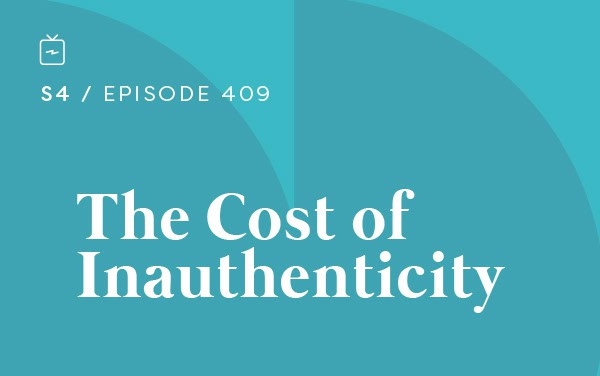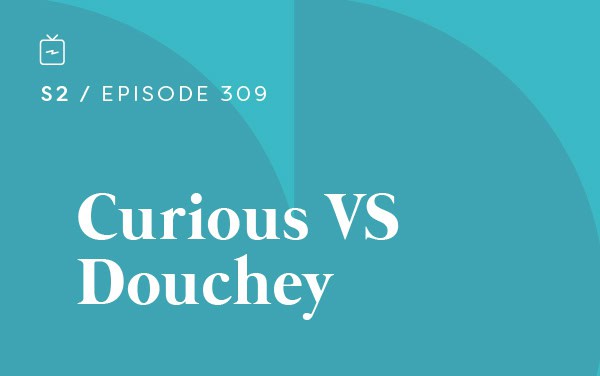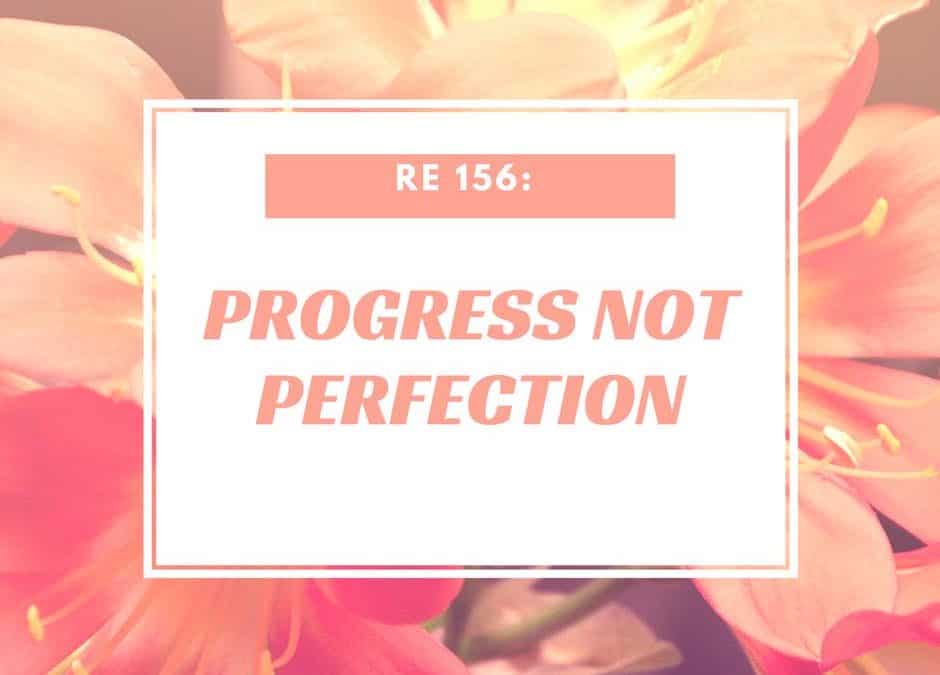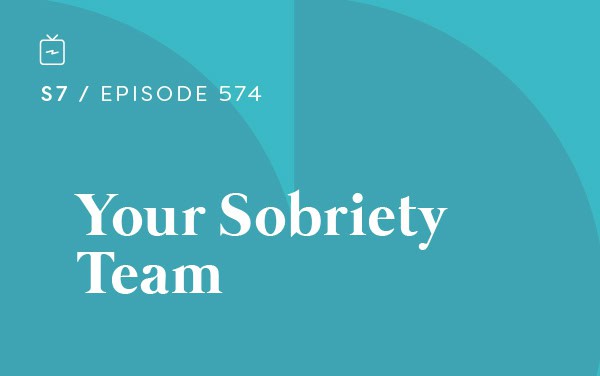
by Kris Oyen | Dec 19, 2022 | Podcast
Podcast: Play in new window | Download
Subscribe to the Recovery Elevator Podcast Apple Podcasts | | More
Episode 409 – The Cost of Inauthenticity
Today we have Jeremiah, he’s 35 from Denver, CO and took his last drink on April 27, 2022.
NYE Sober Prom in San Diego on December 31st. We have Athletic Brewing, Sip Clean, Sound Soda and Crumbl Cookies sponsoring this event, open to Café RE members only.
Registration for REStore is now open! https://www.recoveryelevator.com/restore/
Exact Nature: https://exactnature.com/RE20
Highlights from Paul:
Being inauthentic creates a lot of pain which many of us have tried to address it by using alcohol. We often choose survival over authenticity by putting our basic needs over expressing or being ourselves. Sometimes we have to be inauthentic to fit in.
Dr. Gabor Mate’s book “The Myth of Normal” says “the perceived need to be what the world demands becomes entangled with our sense of who we are and how to seek love. Inauthenticity is thereafter misidentified with survival because the two were synonymous during the formative years.”
It has been studied that being inauthentic can lead to physical disease. And Dr. Sarno has concluded that back pain is not structural but represents repressed emotions, mostly rage.
How can we be authentic? It is a practice and a balance. There are two sides to the coin: saying no to BS and doing more of what you enjoy. Paul challenges us to ask ourselves where we are not being authentic? What BS are we putting up with?
Better Help: www.betterhelp.com/elevator – 10% off your first month. #sponsored
[9:28] Paul introduces Jeremiah:
Jeremiah took his last drink on April 27, 2022. He grew up in Wisconsin but currently lives in Denver, CO. He’s 35, single and has two dogs and loves all varieties of outdoor sports.
Jeremiah didn’t drink in high school but started drinking when he went to college. He was able to do well in school and work and went out a few nights a week drinking like a “normal” college student. After graduating he moved out of state, got married and says his drinking was drastically reduced. Even throughout other life changes including a divorce his drinking wasn’t out of control. After getting a DUI he was ordered to take classes that he didn’t feel that he needed and was able to quit drinking for over a year with relative ease.
He initially saw the pandemic as an opportunity to focus on healthy and productive endeavors. He soon started to feel very isolated, and depression and anxiety started to set in. His doctor put him on an antidepressant and Xanax which he started to abuse and mixing with alcohol. He attended an IOP for Xanax with no intention of quitting drinking initially. After a big relapse he realized he was no longer in control of his drinking and decided to go to inpatient rehab.
He wishes he had gone into rehab sooner where he finally felt relief and realized that he needed to make some changes. He made the decision to quit his job and moved back to Denver where he took some time off and started doing things that he used to enjoy. He feels that his hobbies are just as important to his recovery as the community that he has found in AA and Café RE. He has found that through his hobbies and mindfulness he is better at living in the moment. He looks forward to the future and plans to do more hiking, travelling and hopefully one day have a family.
[48:25] Paul’s summary:
Gen Z and many others are waking up to the fact that alcohol is shit. Just like Big Tobacco had their moment with catchy icons helping us believe that smoking was cool and good for us until people started dying, Big Alcohol has also spun a similar story – that it is good for our health and social life. But we are waking up and just like domestic tobacco sales went to shit, I imagine the same is already in motion for Big Alcohol.
Resources
Connect with Cafe RE – Use the promo code OPPORTUNITY to waive the set-up fee.
Recovery Elevator YouTube – Subscribe here!
Sobriety Tracker iTunes
Recovery Elevator
This isn’t a “no” to alcohol, but a “yes” to a better life.
I love you guys.

by Kris Oyen | Jan 18, 2021 | Podcast
Podcast: Play in new window | Download
Subscribe to the Recovery Elevator Podcast Apple Podcasts | | More
Stephen took his last drink on January 24th, 2020. This is his story of living alcohol free (AF).
Odette’s weekly installment of: Finding Your Better You
“The pleasures of connecting with people are much greater than the pleasures of judging people.”- Johann Hari
If we show up genuinely, we can connect with someone. If we are pretending to listen, we will not connect. Only with actual connection can we truly see each other. In a little departure from talking about quitting drinking Odette is asking us to explore being a better listener. What would that mean? What would that look like? Listening to each other has the power to heal, however it’s also very hard to do. Can we be more curious and see how this can impact relationships?
[6:01] Odette introduces Stephen.
Stephen is 33 years old and lives in Austin, TX. He enjoys exercise, teaching tennis and using his Peloton. He’s planning to return to school in the near future.
[7:30] Can you give listeners some background on your story?
Stephen said he took his first drink at the age of 15. He was curious about it and remembers finding something that made him feel relaxed. Being so focused on tennis, alcohol was mostly a secondary thing. In 2008 he joined the military to be an Airborne Ranger, which is also where he noticed his drinking changed. He left the military in 2015 and the drinking followed him. With nothing to wake up for at 5am anymore, he was able to drink differently. After a few years he walked into an AA meeting and went all in for 7 months’ time. He began drinking again for 5 months which led him to January 2020.
[14:59] Tell me more about your being in the military and the binge drinking. Did you question your relationship with alcohol?
Stephen said he only questioned his drinking in the midst of a bad hangover. He was surrounded by so many others that drank the same way, so it was very normalized. Alcohol was a temporarily release from the stressors.
[19:07] Have you shifted your thinking from that of learning to endure to finding joy?
Stephen said he is still working on this. Coming from his sports and military background he was taught to do whatever it takes to get through something. He’s learned that only works in the short term, but the emotional impact last longer. In recovery Stephen has taught himself that it’s ok when things are easy and to go with the flow. He had to allow himself to surrender to the fact that he cannot live with alcohol in his life at all.
[22:45] What has been different this time?
Stephen said this time he had to adjust his all-in mentality. He’s more tied into recovery communities with actual people and listening to their struggles and stories. He gave up the idea of being perfect but at the same time accepted that he can’t be the best version of himself while drinking alcohol.
[25:06] Have you found anything in sobriety that makes you feel relaxed and free?
Stephen said running helps him and it’s when his body feels good and his mind is at peace. He’s working on trying to be ok with his own thoughts in his own head. Having real conversations with real people makes him feel free.
[25:57] What do you do when you have a craving?
Stephen said he eats. It’s simple and it works for him. He didn’t eat when drinking because he didn’t want to ruin his buzz. Now it’s the opposite. If that doesn’t work, he reaches out.
[26:57] Tell me about this year.
Stephen said at the beginning of COVID he was still able to be collecting a paycheck. He also went through a big breakup, which was different being sober.
[29:30] What’s your everyday routine look like?
Stephen said on a daily basis about connecting with people about his life and their life. Addressing mind, body and spirit, as well as attending therapy.
[31:14] How have the interactions with family and friends been?
Stephen said his family can now see the version of him that’s able to be present. He’s having conversations with family members who are questioning their own drinking.
[34:01] Have you figured out the why of your drinking?
Stephen said he’s been exploring a lot of deeper things with his therapist. He grew up in a home where he had to walk on eggshells. So, he thinks the drinking allowed him to be free of that. However, that led to all of his emotions being repressed and without an outlet except through drinking. Drinking allowed him to feel things and feel human.
[35:38] Have you found therapy to be helpful?
Stephen said yes. He’s an analytical person by nature and having someone to be a sounding board has been helpful. He wouldn’t have gone through a lot of the childhood trauma without his therapist.
[37:36] Has your sleep improved?
Stephen said not yet. He hopes it’s the last piece of the puzzle.
[39:49] Have you gone back to AA?
Stephen said yes, he’s working through the steps again. But he primarily focuses on a larger network for his own recovery.
[41:07] Rapid Fire Round
- What would you say to your younger self?
Stop trying to find clarity and happiness in a bottle. What happened to you as a child is not your fault
- What book are you reading right now?
Claim Your Power by Mastin Kipp
- What’s your favorite ice cream flavour?
Amy’s Ice Cream: Mexican Vanilla
- What parting piece of guidance would you give to listeners thinking about ditching the booze?
There is no perfect recovery.Find your own path, don’t look back and you aren’t alone. There are so many people living a life without booze.
You may have to say adios to booze if…
you jump out of a plane drunk, because you are still drunk from the night before.
Odette’s weekly challenge:
Only you know what is best for you. Protect your energy. What works for some might not work for you. We are all here to encourage and inspire each other. We are challenging big alcohol, you are a part of this.
Upcoming events, retreats and courses:
- You can find more information about our events
Affiliate Link for Endourage:
For 10% off your first CBD order with Endourage visit this link and use the promo code elevator at checkout.
Affiliate Link for Amazon:
Shop via Amazon using this link.
The book, Alcohol is SH!T, is out. Pick up your paperback copy on Amazon here! You can get the Audible version here!
Resources:
Connect with Cafe RE – Use the promo code OPPORTUNITY to waive the set-up fee.
Recovery Elevator YouTube – Subscribe here!
Sobriety Tracker iTunes
Sobriety Tracker Android
Sober Selfies! – Send your Sober Selfie and your Success Story to –info@recoveryelevator.com
“Recovery Elevator – when you show up as you are, you make all the difference for yourself and for the world – I love you guys”

by Paul Churchill | Apr 30, 2018 | Podcast
Podcast: Play in new window | Download
Subscribe to the Recovery Elevator Podcast Apple Podcasts | | More
The alcohol industry gives the government funds to prove light drinking is safe.
In today’s era of information overload, it can be difficult to sort the truth from the strong opinions. As the lines between journalism, science and advertising continue to blur, it can become difficult to know where to stand when one can find a seemingly reputable article or study to support any side of any opinion.
The alcohol industry is no stranger to the ways of public relations. The NIAAA (National Institute on Alcohol Abuse and Alcoholism) is a government established institution that funds approximately 90% of research on the effects of consuming alcohol in the US. Regarding a recent study on the effects of light drinking, it is no surprise to find out that $67 million was provided by 5 big alcohol companies, most likely to ensure that the results of the study fell in line with their message that alcohol is good for you.
Remember that alcohol is still poison, it’s still bad for you, and consuming alcohol still has real consequences, despite the what the heavily funded opinions of the alcohol industry would lead you to believe.
Daniel, with 128 days since his last drink, shares his story…
SHOW NOTES
[10:37] Paul Introduces Daniel.
Daniel is 43 years old, has a girlfriend and an 8 year old daughter. He works in telecom sales and enjoys biking, running, and reading.
[14:10] When did you first realize that you had a problem with drinking?
In his early 20s. Alcoholism runs in his family. He started drinking regularly in high school, then it became excessive in college. In his mid 20’s he began drinking in solitude.
[18:15] Talk to us about the 20 years you were drinking.
There were phases where he would think he was okay because he was functioning, but he would occasionally binge drink. He drank less after he got married in his late 20s but it eventually ramped up again. When he was binge drinking he wouldn’t eat.
[20:28] When did you first attempt to quit?
He started going to AA in his mid 20s but he wasn’t ready.
[21:10] Did you experience a rock bottom? Did you have a faulty off switch?
No, it was gradual. He would drink before work. He slowly lost control as depression and anxiety set in. He finally talked to his family and decided to go to a inpatient detox facility. It was difficult to stop once he started. He started drinking again after 25 days sober, thinking it was different.
[26:30] Tell us about your experience with the incredibly short memory (ISM).
He would find himself returning to the hospital after a short time away.
[28:33] What inspired you to quit, most recently?
His family. He spent some time away from them and it inspired him to quit. He experienced moments of clarity and made a decision. He found some supportive people to help him.
[32:02] What were your first 30 days like? How did you deal with cravings?
He drank a lot of seltzer water and non-alcoholic beer.
[34:10] What is a typical day in your recovery? How have you made it to 128 days?
He found a local AA group, and got a sponsor. He reads a lot. 4 or 5 AA meetings a week.
[41:10] Rapid Fire Round
- What was your worst memory from drinking?
A horrible physical detox.
- Did you ever have an “oh-shit” moment?
He was drinking at work.
- What’s your plan moving forward?He wants to stay accountable, and tell his story. Keep reading and learning.
- What’s your favorite resource in recovery?The books, podcasts, AA
- What’s the best advice you’ve ever received (on sobriety)?
Follow your drink to the end. You’ll start with one drink but end with a three-day bender.
- What parting piece of guidance can you give listeners who are in recovery or thinking about quitting drinking?
If you’re listening to RE, most likely you’re heading down the path.
- You might be an alcoholic if…
If you go home and drink 8-12 beers, but then hide the cans so no one sees how much you drink, even though you live alone.
Resources mentioned in this episode:
LINK TO STUDY ARTICLE
Recovery – A book by Russell Brand
This Naked Mind – a book by Annie Grace
The Untethered Soul – by Michael Singer
Girl Walks Out of a Bar – by Lisa Smith
Connect with Cafe RE– Use the promo code Elevator for your first month free
Sobriety Tracker iTunes
Sobriety Tracker Android
Sober Selfies! – Send your Sober Selfie and your Success Story to info@recoveryelevator.com
“We took the elevator down, we gotta take the stairs back up, we can do this!”

by Paul Churchill | Feb 12, 2018 | Podcast
Podcast: Play in new window | Download
Subscribe to the Recovery Elevator Podcast Apple Podcasts | | More
In this episode, Paul vents a little bit of his frustration and anger in recovery about AA and “big alcohol”.
Without alcohol in our lives to help us deal with difficult emotions.. anger, resentment, and frustration (to name a few) often rise to the surface. Paul expresses his concern for the abundance of alcohol in society, despite the overwhelming evidence that it is destructive and harmful.
Katie, with 496 days since her last drink, shares her story:
SHOW NOTES
[12:00] Paul Introduces Katie.
Katie is 29 years old, originally from New York, but lived in Colorado for a while and now lives in Dallas, Texas. Since quitting drinking and she is now into fitness. She recently ran her first half marathon.
[15:45] How did you realize you had a problem and how did you get sober?
Katie drank a lot in school. After college, she moved to Denver. She started going out every night, and developed insomnia. Went to the doctor, was prescribed Xanax. The medication eventually stopped working. The insomnia continued. She medicated on both ends of her sleep.
[19:50] When did you realize the core problem wasn’t being solved?
In Dallas, the doctors tried to taper down her medications.
[23:33] When did rehab enter the picture?
She felt alone and stuck. She broke down in her apartment. While moving, she found pills that she was hiding from herself. While her father was helping her move, they went to therapy and had a break down in front her her therapist and her father. Therapist told her she was still young and had a lot of life in front of her.
[27:45] You realized you had a drinking problem while in rehab?
Yes. She was in denial about why she was going. Thought it was just for rest. Left sober, but with the intention of using her meds normally, or as prescribed. In rehab, she slept well. She was going to try to use meds to stay sober… realized she was an alcoholic.
[30:35] What was it like after?
Returning to Dallas was tough. She had no support structure. Started to make friends through the sober community. Got into fitness. Met a guy who was a big drinker, turns out he had been sober for a while and understood her situation.
[37:00] How did you overcome the desire to relapse?
She lost a romantic partner, and it was difficult. She insisted on making it to 1 year, though. She realized that emotions are fleeting.
[38:10] What is your proudest moment in sobriety?
She’s visiting her best friend from college. They’re celebrating sobriety together. She’s also found out that many other people are getting sober.
[40:26] What is something that you’ve learned about yourself in sobriety?
She’s resilient. She’s been hitting her fitness goals more easily.
[41:41] Rapid Fire Round
- What was your worst memory from drinking?Woke up in a disgusting apartment with bug bites.
- Did you ever have an “oh-shit” moment?The moment of clarity in rehab.
- What’s your plan moving forward?Focus on the positive, and keeping the eye on the prize. Don’t mess with the routine.
- What’s your favorite resource in recovery?Her gym. A tough workout, with intention setting.
- What’s the best advice you’ve ever received (on sobriety)?It’s a lot easier to stay sober than it is to get sober.
- What parting piece of guidance can you give listeners who are in recovery or thinking about quitting drinking?Just try it. You can always go back to the life with alcohol.
- You might be an alcoholic if…You have a parking permit at the liquor store so you can park there without worrying about driving drunk.
Resources mentioned in this episode:
Visit Rxbar.com/elevator and use the promo code elevator for 25% off your first order.
The Sober Truth – a book by Lance and Zachary Dodes, debunking recovery programs
From Death Do I Part – a book by Amy Lee Coy, her story about overcoming addiction
Connect with Cafe RE– Use the promo code Elevator for your first month free
Sobriety Tracker iTunes
Sobriety Tracker Android
Sober Selfies! – Send your Sober Selfie and your Success Story to info@recoveryelevator.com
“We took the elevator down, we gotta take the stairs back up, we can do this!”

by Kris Oyen | Feb 16, 2026 | Podcast
Podcast: Play in new window | Download
Subscribe to the Recovery Elevator Podcast Apple Podcasts | | More
Today we have Kerri. She is 51 years old from Maine and took her last drink on June 7th, 2025.
This episode is brought to you by:
Sign up and get 10% off: Better Help
Soberlink – sign up and claim your $100 enrollment bonus
If you have been thinking about joining Café RE, now is the time. The monthly price is increasing to $29 per month on March 1st. If you’re already a member, your price will not increase, this is only for new membership. Keep in mind that $29 per month is most likely a fraction of what you may have spent on alcohol per month.
[04:09] Thoughts from Paul:
Last week we talked about patience and how preparation is sacred work. This week, we are talking about building your expedition team a.k.a., your sobriety team.
First, there is this podcast. Paul and the RE production team are part of your team. All interviewees are part of your team.
Then you need community. This can be in-person or online with other sober people. You need people who get it, who’ve been where you are, and who can remind you why you are doing this. There is also no shame in seeking professional help or a therapist.
And don’t forget God, or a higher power, or the universe, or whatever you want to call that thing bigger than yourself. Because when you’re in the wilderness and the map runs out.
This week, ask yourself: who’s on my team? And if the answer is “nobody yet” then your mission is to find at least one person. Because you can’t do this alone. You weren’t meant to do this alone. Lean in.
[08:14] Paul introduces Kerri:
Kerri is 51 and lives in Maine. She is a registered nurse, divorced and has two older teenagers. For fun she loves live music, yoga, sauna, kayak, writing and spending time with her kids.
Kerri first tried alcohol when she was 12. She grew up in a townhouse community with lots of other kids and limited supervision. Kerri went to college in Boston where she says she partied like the guys did and was the girl that was let in. Her 20’s were pretty healthy and she doesn’t feel her drinking was a problem at that point.
Kerri has a sister in recovery. She says their alcoholism was more overt and people would comment on it, but Kerri kept drinking privately and faked control over it. When she got married, she and her husband were drinking partners and would drink daily. Over time she says she felt a switch flip and began to try and control her drinking with little luck.
When she got divorced, Kerri says she was undone. Alcohol became her coping mechanism, but she kept it concealed and remained functional. She tried to quit after her first DUI, but it lasted nine months and then she began to test the water again every few months afterwards. Kerri feels that moderation is a lie, from her experience.
Last June, Kerri lost her job as a school nurse and says she hit an emotional rock bottom. She no longer cared about herself, drank a box of wine and then drove leading to another DUI. Prior to this event, her drinking had been ramping up to the point her kids were noticing it. Her kids reaction to her DUI led Kerri to decide she needed to quit.
Utilizing her sister as a resource and attending AA, Kerri was determined to work on her recovery. Her life was crashing down around her, and her sister asked her what she was going to do differently. Kerri found herself on her knees surrendering and asking for help, which is something that has never been easy for her.
Podcasts have been a great tool for Kerri because she lives in a rural area and it’s hard to get to meetings. Other tools she uses are journaling, sauna, yoga and she is committed to attending AA once a week.
Kerri’s message to those that are still struggling: “your life will get better. It is so incredibly worth it. It could be the most challenging thing you’re ever going to go through but imagine being clear and present for your own life”.
Recovery Elevator
You took the elevator down
You’ve got to take the stairs back up
We can do this
RE Instagram
Sobriety Tracker iTunes
RE YouTube







